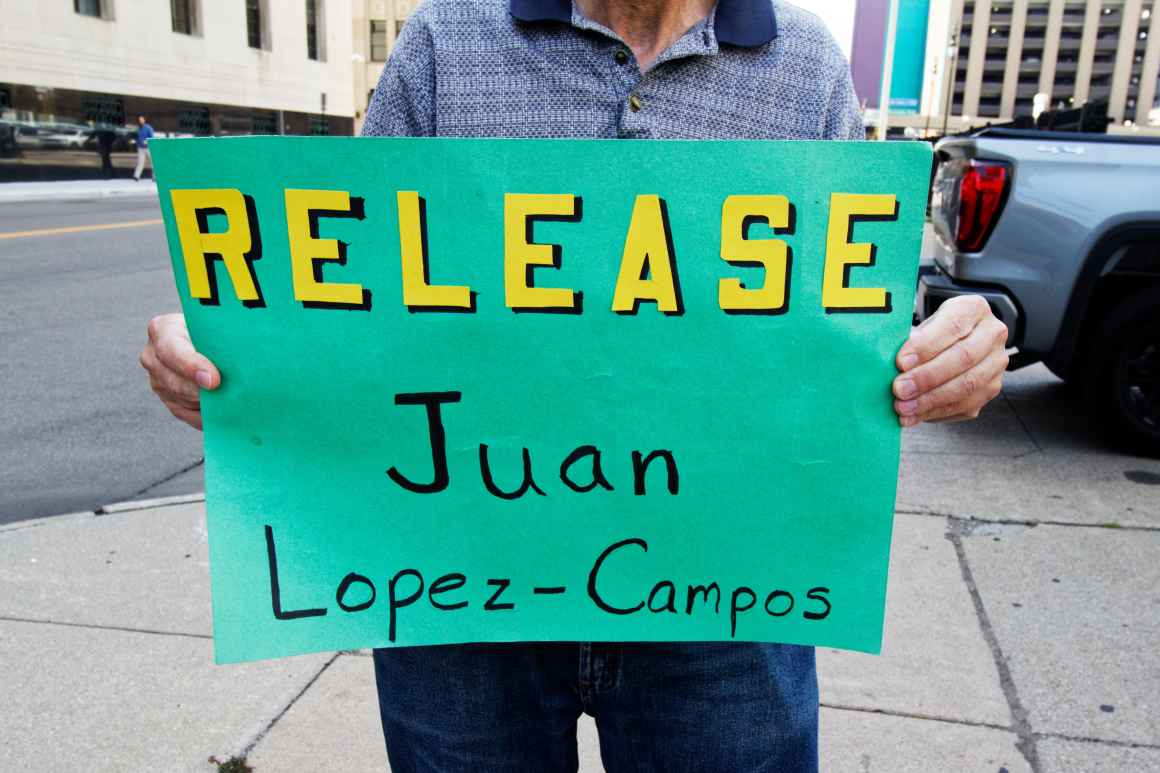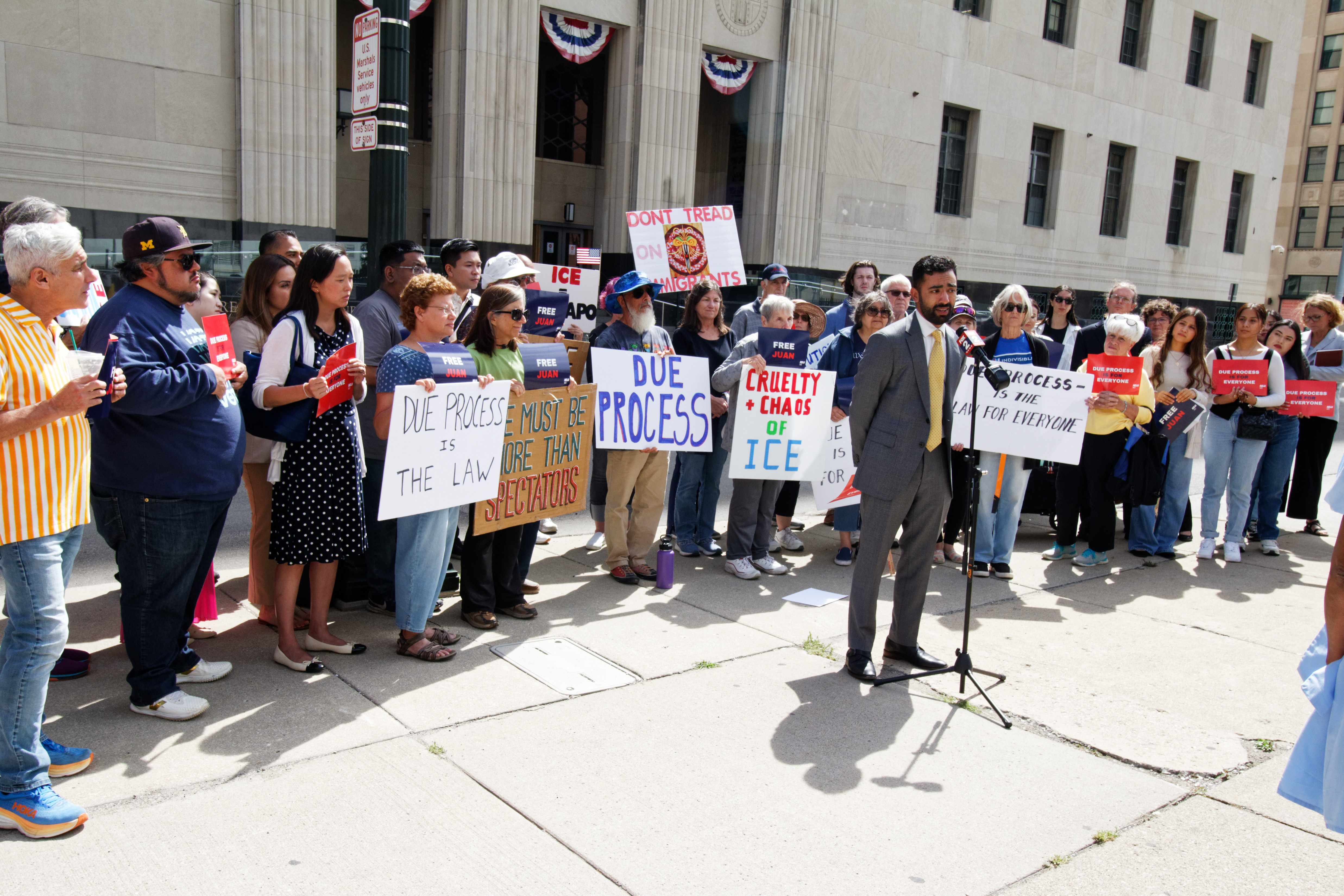By: Elvira Hernandez
Mid-September and the start of Hispanic Heritage Month has, in the past, always been something I’ve looked forward to. As an immigrant from Mexico, I take great pride in my heritage and culture. Seeing that on display at festivals and events never fails to bring a broad smile and a sense of comfort.
Having lived in Michigan from a very young age, and now having my own children and grandchildren, I’ve always looked forward to Hispanic Heritage Month to share with my family, friends, neighbors and co-workers our culture, our heritage and often learn something new. The colors that are so vibrant in the traditional clothing worn by folklore dancers, the different rhythms from oh so many genres of Latino music, and the delicious smells from the variety of foods that span so many different Hispanic countries always entice me to the many different events held during the month.
This year, however, my usual eager anticipation has been replaced by a feeling of dread and concern. That’s because of the reign of terror the Trump administration’s intense focus on immigrants has brown-skinned people afraid to leave our homes. Even if, like me, you are a U.S. citizen, there is the pervasive fear of being harassed by Immigration and Custom Enforcement officers or possibly detained. I’ve seen it happen.
Just a few years ago, Grand Rapids resident Jilmar Ramos-Gomez, a former Marine, was locked up by ICE for three days and threatened with deportation even though he had his passport and other documents proving his U.S. citizenship.
So, the fears are justified, and the reluctance to go anywhere you don’t have to, especially if you are undocumented, or have a mixed status family or group of friends is completely reasonable. And widespread.
“Our polling shows 43% of Latino voters fear they could be arrested by immigration authorities – even if they are citizens or have legal status – which has disrupted the daily lives of the Latino community,” Rita Fernández, director of immigration policy project at UnidosUS, recently told The Guardian newspaper.
Ripple Effects
The impact of all this on businesses that cater to the Latino community is significant.
A recent Detroit News story about the economic impact of ICE’s ramped up enforcement efforts on Detroit’s Mexicantown business district:
“Small business owners in Michigan's largest Latino community say they are reeling amid President Donald Trump's aggressive mass deportation campaign. With some longtime customers being deported and others increasingly electing to leave the area, they describe a pervasive climate of fear around immigration enforcement that's deterring locals from being out in public, and in turn depressing foot traffic and sales.”
Similar reports from around the country abound, including California, Connecticut, Florida, Illinois, Kansas, Louisiana, and Texas. And it is not just Hispanic American immigrants in those and other states suffering from the Trump administration’s crackdown.
“Immigrant workers make up a substantial part of the workforce in the United States: 1 in 5 workers is an immigrant, and about half of immigrants are noncitizens,” according to a July report from the Economic Policy Institute. “Because of their sizable presence in the workforce, large-scale attempts to remove them will lead to extensive employment losses for foreign-born workers. What is less apparent, however, is the impact that arrests, detentions, and deportations of immigrants will have on millions of U.S.-born workers who will lose their jobs.”
The reason an immigration crackdown will harm citizens in the workforce is explained this way:
“Because jobs held by U.S.-born and immigrant workers are often complementary and economically linked, the shrinking supply of immigrant labor can adversely affect employer demand for jobs held by both groups of workers. … when there are fewer immigrant roofers and framers to build the basic structure of homes, there will be less work available for U.S.-born electricians and plumbers. If there are fewer dishwashers and cooks, restaurants may limit their hours or shift their operations toward takeout, reducing the overall employment of waitstaff and managers.”
The report concludes: “The widespread job losses for both immigrants and U.S.-born workers will undercut the narrative that abruptly removing immigrants will somehow magically increase employment opportunities for U.S.-born workers.”
Rays of Hope
Maybe hearts will soften as the economic pain from the Trump administration’s focus on deportations spreads beyond the communities being targeted by ICE. Time will tell. What I know right now is this: Hispanic Americans will respond with resistance, and allies will be at our side.
I can speak confidently about the resilience of Hispanic Americans because I’ve seen it throughout my life. The life of immigrants is never easy, and the ability to adapt and overcome hardship is essential to survival. It is in our marrow.
So, I was not surprised recently when I came upon a few TikTok posts from owners of businesses in Mexicantown, who are banding together in an effort to boost their businesses.
As for allies showing up – that is reason to take heart!
From the Detroit Jews for Justice Immigration Team, which is helping build a community defense network for the large immigrant community in Southwest Detroit, to Grand Rapids Response to ICE, a network of people trained to come to the aid of immigrants who face arrest, detention, or deportation from ICE, people across the state are showing up for us in a big way.
What can you do?
An easy way for non-Latinos to demonstrate solidarity is to simply show up. Patronize restaurants and shops owned by immigrants. And attend any of the festivals and events being held across the state beginning Sept. 15.
Maybe I’ll see you at one of them. Fear isn’t going to stop me from celebrating Hispanic Heritage month to the fullest.
Date
Monday, September 15, 2025 - 9:15amFeatured image


